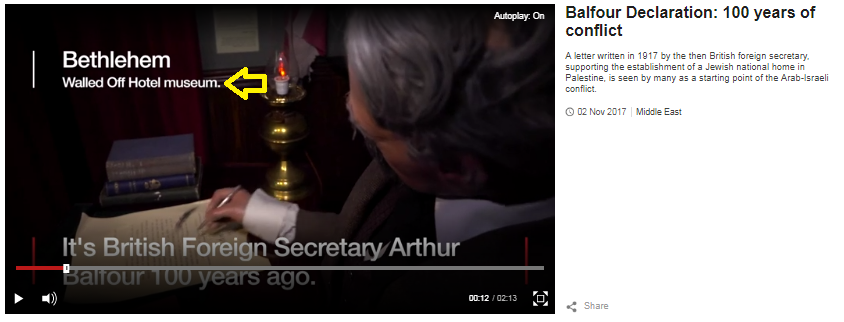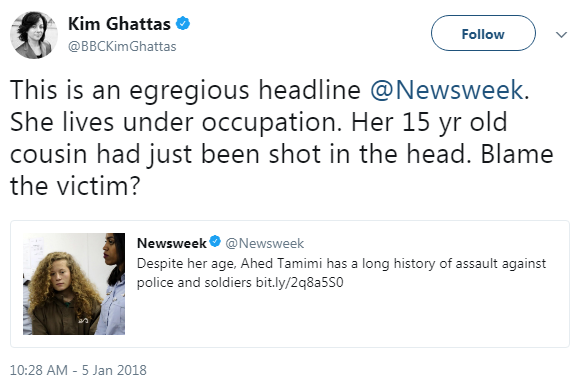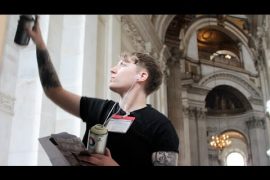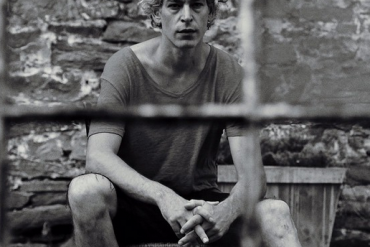On September 22nd an article appeared on the BBC News website’s Middle East page under the title “Egypt ‘demolishes thousands of homes’ for Sinai buffer zone“. That article is in fact yet another piece of ‘churnalism‘, with almost its entire content being devoted to amplification of a report by one of the BBC’s most frequently quoted and promoted political NGOs – Human Rights Watch (HRW).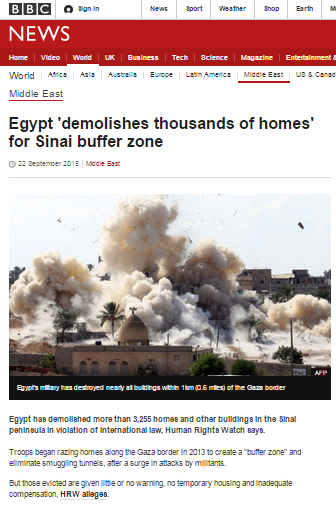
Despite the fact that the HRW report is based on information gathered from selected media reports, anonymous witnesses and unidentified ‘activists’, the BBC uncritically repeated its claims, with variations of the phrase “HRW says” appearing seven times throughout the article and no attempt made to provide readers with further relevant background material. Thus, for example, readers were steered towards the view that no justification exists for Egypt’s actions on its border with the Gaza Strip.
“The [Egyptian] military aims to eventually clear an area of about 79 sq km (30 sq miles) along the Gaza border, including all of the town of Rafah, which has a population of about 78,000 people, HRW says.
The government says the operation will allow the military to close smuggling tunnels it alleges are used by jihadists to receive weapons, fighters and logistical help from Palestinian militants in Gaza.
But HRW said little or no evidence had been offered to support this justification, citing statements from Egyptian and Israeli officials that suggested weapons were more likely to have been obtained from Libya or captured from the Egyptian military.”
Were the BBC’s own record of reporting on the subject of collaboration between the Sinai based Salafists and elements within the Gaza Strip less dismal, it would of course have been able to provide readers with background information crucial to their being able to put that HRW claim into context. As the Times of Israel reported in January 2015:
“Egyptian intelligence has specific information on assistance that Sinai terrorists have been receiving from the Gaza Strip. Many activists trained in Gaza, and received arms there that they have been using against Egyptian forces.
That is the source of the urgency around creating the buffer zone: the goal is to cut the jihadis off from their Gaza supply route. On Monday Egyptian media reported on a jihadist cell that enjoyed considerable help from Hamas, and tried to infiltrate Sinai through tunnels. Most of the tunnels aren’t open, but occasionally smugglers on both sides of the border manage to build a new one. The Egyptian army recently uncovered a 1,700-meter passage.”
As has been the case on many past occasions, the BBC makes no effort to inform readers of this article of HRW’s political agenda – despite the need to do so being clearly stated in the corporation’s editorial guidelines on impartiality.
That recurrent omission is all the more remarkable in light of the fact that in earlier this year, HRW (once again) took up the BBC’s case at the United Nations periodic review of Rwanda.
“The HRW’s Submission for the Universal Periodic Review March 2015 contains the following recommendations for Rwanda: […]
Allow the BBC Kinyarwanda service to resume its broadcasts in Rwanda.”
Public impressions of BBC impartiality and independence will of course not be enhanced by the appearance of articles uncritically amplifying content produced by a political NGO which just happens to have used its UN platform to promote the BBC’s interests.
Related Articles:

